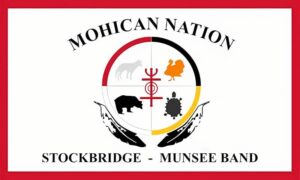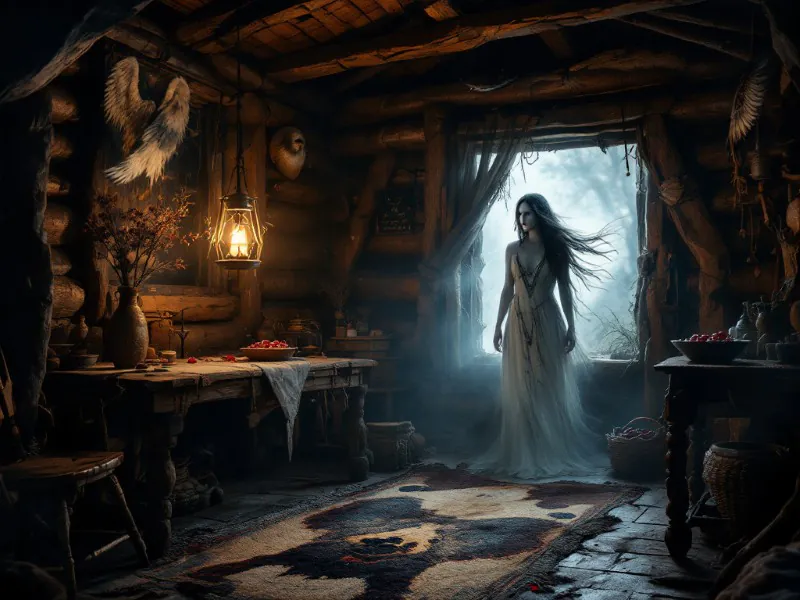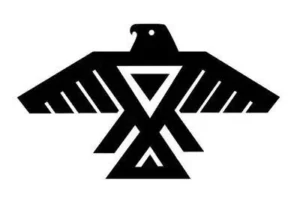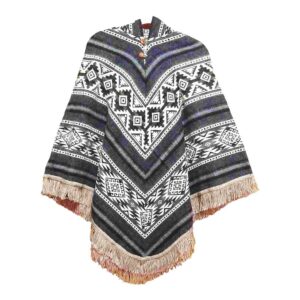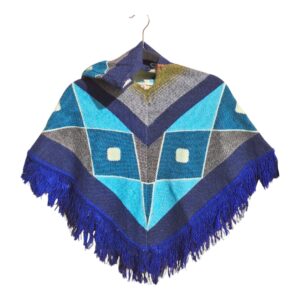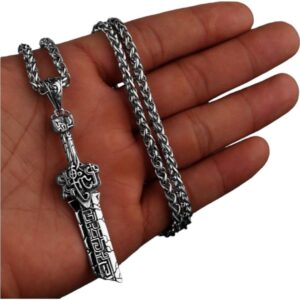Introduction to the Stockbridge Munsee Community of Wisconsin
The Stockbridge Munsee Community, a vibrant Native American tribe located in Wisconsin, is a testament to resilience and cultural richness. This group is composed primarily of descendants from the Mahican (Mohican) and Munsee peoples, who have a storied history that dates back centuries. Originally from the northeastern woodlands, the Stockbridge Munsee Community has faced numerous challenges, including displacement and assimilation, yet they have maintained their unique cultural identity and traditions.
Situated in the picturesque landscape of northeastern Wisconsin, the tribe’s reservation encompasses around 1,200 acres in Shawano County, offering a sacred space where they uphold their heritage and community values. With a focus on economic progress, cultural preservation, and education, the Stockbridge Munsee Community actively engages in initiatives that support their members and foster connections with the broader community.Visitors to the Stockbridge Munsee Community can experience the rich tapestry of their culture through various activities and events, including traditional ceremonies, arts and crafts, and educational programs. They proudly showcase their heritage through the preservation of language, storytelling, and crafts that reflect their deep connection to the land and their ancestors.As one of the many tribes in Wisconsin, the Stockbridge Munsee Community not only enriches the state’s cultural landscape but also plays an integral role in advocating for Native American rights and issues. Through their commitment to fostering cultural awareness and promoting social justice, they provide a powerful example of how indigenous communities can thrive while honoring their past. Whether you’re looking to learn more about Native American culture or seeking to engage with a community rich in history, the Stockbridge Munsee Community offers an inviting and enlightening experience.
Origin Of The People
The Stockbridge Munsee Community, located in Wisconsin, traces its origins back to the Mahican (or Mohican) people, an Indigenous group originally inhabiting the Hudson River Valley in what is now New York. Historically, the Mahican people were primarily agriculturalists, thriving in a region abundant with resources that allowed them to cultivate crops and sustain a vibrant community. Their traditional territory spanned from present-day Albany, New York, to the western parts of Massachusetts, where they established villages along the riverbanks and navigated the bountiful landscapes.
Facing pressures from European colonization in the 17th century, such as land dispossession and conflicts with settlers, many Mahican people relocated to safer areas. In the 18th century, following a series of conflicts, including the French and Indian War, the Stockbridge Mahicans, led by their chief, settled in Stockbridge, Massachusetts. This community was a prominent ally to both the British and the colonists during the American Revolution, which further complex their standing and led to ongoing turmoil in their region.
As pressures continued to mount, especially with the advent of westward expansion, the Stockbridge Mahicans were forced to migrate westward once more.In the early 19th century, they established a new home in Wisconsin after being granted land in the state as part of a broader effort to consolidate Native American communities into designated territories.
Today, the Stockbridge Munsee Community retains its cultural heritage while actively engaging in economic development and environmental stewardship.Continuous efforts to preserve their language, traditions, and history highlight the resilience of the Stockbridge Munsee people, showcasing a vibrant culture that has adapted over centuries while still honoring its rich ancient roots.The community exemplifies the enduring spirit of Indigenous peoples in the face of adversity, representing a blend of tradition and modernity in their ongoing journey.
Tribal Homelands
The Stockbridge Munsee Community, located in north-central Wisconsin, represents a vibrant blend of cultural heritage, history, and resilience. The tribal homelands of the Stockbridge Munsee date back to their origins in the historic Stockbridge area of Massachusetts. Following significant displacement due to colonial pressures, the community embarked on a series of migrations that brought them to Wisconsin in the 19th century.
The present-day reservation spans nearly 22,000 acres in Shawano County, offering picturesque landscapes that include woodlands, streams, and wetlands. This rich natural habitat is integral to the tribe’s traditional practices and customs,providing resources for fishing,hunting,and gathering. The Stockbridge Munsee Community is committed to protecting and preserving its natural homeland,recognizing its critical role in the sustenance of both the land and the community’s cultural identity.
An important feature of the Stockbridge Munsee area is the Mohican Nation’s historical connection to the land, which is imbued with stories, traditions, and spirituality. This is reflected in their cultural celebrations, like the annual Powwow, where community members gather to honor their ancestry and share their heritage with visitors. The tribe also actively engages in ecological stewardship to maintain the health of their land, recognizing the importance of sustainable practices in preserving their environment for future generations.
In addition to cultural preservation, the Stockbridge Munsee Community is involved in economic development projects that bolster their self-sufficiency and provide benefits to tribal members. Various ventures, including the operation of the North Star Mohican Casino Resort, not only create jobs but also support community programs essential for education, health, and well-being.
Ultimately,the Stockbridge Munsee Community’s sense of place extends beyond physical territory; it encompasses a profound relationship with their ancestral lands,deeply rooted in their identity as the Mohican people. As stewards of their tribal homelands, they continue to foster a vibrant community where the past is honored, culture is celebrated, and future generations can thrive.
Interactions With Settlers
The Stockbridge Munsee Community, a federally recognized tribe in Wisconsin, has a complex history of interactions with settlers that encompasses both positive and negative aspects.These dynamics have shaped the tribe’s identity and resilience over the centuries.
Positive interactions often stemmed from economic cooperation and cultural exchange. Early settler relationships involved trade, which initially benefited both parties. The Stockbridge Munsee were skilled agriculturalists and traders, providing settlers with vital resources such as food and knowledge about local farming techniques. The tribe also offered linguistic and cultural insights, helping to bridge gaps between Native and European communities. For some settlers, these interactions led to friendships and alliances, fostering a sense of mutual respect and collaboration.
However,the negative consequences of settler interactions cannot be overlooked.The encroachment of European settlers on their ancestral lands resulted in significant loss for the Stockbridge Munsee. The tribe faced numerous treaties,often negotiated under duress,which led to the cession of vast territories. The pressure from settlers to assimilate also caused cultural disruption and loss of traditional practices. As more settlers arrived, tensions escalated, leading to conflicts and confrontations that further eroded the tribe’s autonomy.
Additionally, historical events such as the American Revolution and subsequent land dispossession heightened these tensions. The Stockbridge Munsee fought valiantly during the war, aligning with the American patriots, yet they faced repercussions in the form of mistrust and violence from settlers who viewed them with suspicion. This duality of experience highlights the complicated legacy of settler interactions, which oscillated between cooperation and betrayal.
Today, the Stockbridge Munsee Community continues to navigate the intricacies of its relationship with surrounding communities. The tribe focuses on preserving its cultural heritage while engaging in economic development initiatives that promote sustainability and cooperation. Understanding this history helps frame the current dialog about sovereignty,identity,and the ongoing impact of settler interactions on Native American tribes like the Stockbridge Munsee.
Most Notable Events In Their Tribal History
The Stockbridge Munsee Community, a federally recognized tribe located in Wisconsin, has a rich and complex history that reflects resilience and adaptability. One of the most notable events in their tribal history occurred in the early 18th century when the Stockbridge people,originally part of the Mahican Nation,migrated to western Massachusetts to escape European colonial encroachment. This migration brought them into close contact with European settlers, leading to both an alliance and subsequent hardships during conflicts like the French and Indian War.
In the 1770s, as tensions grew towards independence from British rule, the Stockbridge became known for their participation in the American Revolutionary War, aligning with American forces in hopes of securing their land rights. This partnership showcased their commitment to liberty but also resulted in significant losses, including the devastation of their community and displacement in the aftermath of the war.
The 19th century marked another significant chapter in their history, particularly with the relocation process in the 1820s. Under pressure from expansionist policies, the Stockbridge Munsee people were compelled to leave their ancestral lands in Massachusetts, resulting in a harrowing journey westward to present-day Wisconsin. This relocation was fraught with difficulties, including loss of life and fragmentation of families.
In 1856, they officially established the Stockbridge Munsee Indian Reservation in Shawano County, Wisconsin, where they reestablished their community and began to adapt to new economic opportunities. The tribe made strides in agriculture and established a thriving community despite facing ongoing challenges, including assimilation pressures and economic hardships.
Recent decades have seen a resurgence of cultural revitalization and political activism within the Stockbridge Munsee Community. In 1973, the tribe regained federal recognition, which was a pivotal moment that allowed for revitalization efforts of their cultural practices and language. Today,the Stockbridge Munsee Community is recognized not only for their historical meaning but also for their contemporary contributions to the broader Native American landscape in the United States. Their history, marked by resilience in the face of adversity, underscores a story of survival and cultural pride that continues to inspire future generations.
Where Are Their Tribal Lands Now And How Were They Established
The Stockbridge Munsee Community, located in northeast Wisconsin, is a vibrant and active tribe that has worked diligently to establish and maintain its tribal lands. The community originates from the Mohican people, who were originally situated in the Hudson River Valley of New York. Following a series of conflicts, treaties, and forced relocations in the 18th and 19th centuries, the tribe migrated to Wisconsin in the 1850s, where they were granted a reservation.
Their current tribal lands encompass approximately 22,000 acres in the town of Bartlet in Shawano County,Wisconsin. These lands were established through various treaties and acts of Congress,most notably the 1856 Treaty of the Stockbridge and Munsee,which recognized the tribe’s rights to a reserved area in Wisconsin. The Stockbridge Munsee Community has since worked diligently to regain and expand their lands through legal battles,land purchases,and advocacy for federal recognition.
Today, the tribe’s lands are not only a cultural and spiritual home but also support essential services and economic ventures, including the operation of the North Star Mohican Casino Resort. The tribe remains committed to preserving its rich heritage and ensuring that the land serves future generations. This ongoing commitment reinforces their identity and sovereignty as a distinct entity within the broader context of Native American tribes in the United States.
Modern Concerns Of The Tribe
The Stockbridge Munsee Community in Wisconsin faces a range of modern concerns that reflect both the challenges of contemporary tribal governance and the broader issues affecting Native American communities. One significant concern is economic development. Like many tribes,the Stockbridge Munsee Community is actively seeking to diversify its revenue streams beyond traditional sources,such as gaming operations. The tribe has been working on various initiatives, including the expansion of its tourism industry, development of small businesses, and investment in sustainable energy projects. These efforts aim to create job opportunities for community members while fostering economic self-sufficiency.
Another pressing issue is environmental stewardship. The Stockbridge Munsee Community is deeply connected to the land and has prioritized efforts to protect its natural resources. With climate change posing increasing risks, the tribe is focused on implementing sustainable practices to preserve its environment for future generations. This includes restoration projects for local ecosystems and promoting conservation education within the community.
Cultural preservation is also a central concern for the Stockbridge Munsee Community. As modern influences increasingly permeate their lives, maintaining their cultural heritage, language, and traditions has become crucial. The tribe invests in educational programs that teach younger generations about their ancestral practices, ensuring that their unique identity and history endure. This cultural revival is often intertwined with social issues, such as mental health and substance abuse, where the community seeks healing through traditional practices and holistic approaches.
Health disparities remain a persistent challenge for the Stockbridge Munsee Community. Access to quality healthcare can be limited due to socioeconomic factors, and the community is actively advocating for improved services.Addressing these disparities involves not only enhancing healthcare access but also integrating traditional healing methods with modern medical practices to provide comprehensive care for members.
Moreover, the Stockbridge Munsee Community is involved in legal battles related to sovereignty and land rights. As issues surrounding treaty rights and land claims continue to be contested, the tribe remains vigilant in protecting its rights and defending its interests against external pressures. Engagement in political discussions and collaborations with other tribes reinforces their stance on these critical matters.
the Stockbridge Munsee Community of Wisconsin is navigating a complex landscape of economic, environmental, cultural, and health-related challenges. Through proactive measures and a strong commitment to their heritage, the tribe aims to create a resilient and thriving future for its members.
Events And Other Social And Political Activities
The Stockbridge Munsee Community, a federally recognized Native American tribe in Wisconsin, has been actively involved in a variety of events and social and political activities that emphasize preserving their rich cultural heritage and advocating for their rights.This dynamic tribe traces its roots back to the Mohican people, and today, they continue to engage in activities that strengthen community bonds and promote cultural awareness.
One significant event is the annual Stockbridge Munsee Community’s Pow Wow, which draws attendees from across the region. This vibrant gathering showcases traditional dancing,music,and art,allowing both tribe members and the public to experience Mohican culture firsthand. Participants enjoy tasty native foods such as fry bread and corn soup, while artisans display their handcrafted goods, contributing to a lively marketplace atmosphere.
In addition to cultural celebrations, the Stockbridge Munsee Community is also actively involved in political advocacy. They participate in regional and national dialogues surrounding Indigenous rights, sovereignty, and environmental issues. The tribe has been vocal in discussions aimed at protecting both their ancestral lands and natural resources. Through collaborations with various organizations, the Stockbridge Munsee Community aims to educate the broader public about the ongoing challenges facing Indigenous peoples today.
Moreover, the tribe has been proactive in fostering educational initiatives, including partnerships with local schools to promote Native American history and culture. Workshops and presentations designed for students help break down stereotypes and build mutual respect between the Stockbridge Munsee and their non-native neighbors.
Socially, the community frequently organizes wellness events focused on mental health, substance abuse prevention, and healthy living. These gatherings stress the importance of holistic health practices rooted in traditional healing methods, demonstrating the tribe’s commitment to improving the well-being of its members.
Engagement in local governance is another critical aspect of the Stockbridge Munsee Community’s activities. Tribal leaders consistently participate in governmental planning sessions, ensuring that the tribe’s voice is heard in decisions that affect their community. With a keen focus on issues such as economic development, housing, and education, they work diligently to create opportunities for all community members.
Through these various events and activities, the Stockbridge Munsee Community illustrates its dedication to preserving its heritage, advocating for social justice, and fostering unity among its members and the broader community.
